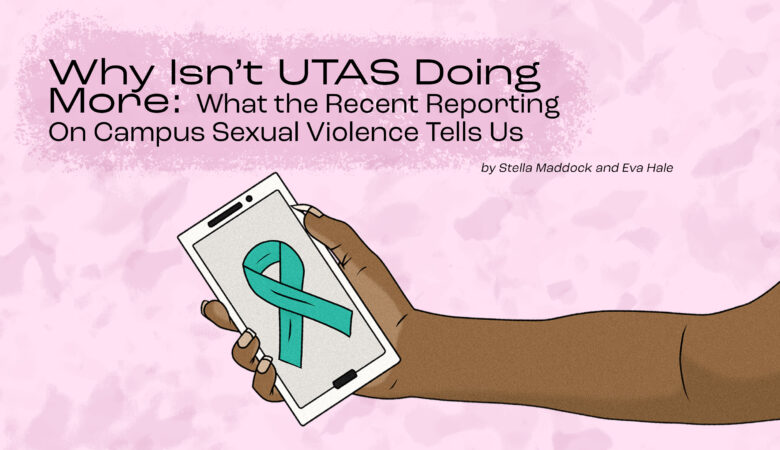Students and stakeholders in the University of Tasmania’s Law Faculty have expressed concerns about the quality of legal education this semester amid heightened tensions regarding the proposed change to the Legal Practice Course. The current Legal Practice Course, a five month “hands on” postgraduate course, allows graduates to develop their critical legal skills in a face-to-face environment and remains highly regarded amongst the Tasmanian legal and academic community. Last year alone, it boasted a one hundred per cent employment rate. However, former governor Kate Warner, Chief Justice Alan Blow and Law Society of Tasmania President, Simon Gates (among other distinguished stakeholders) reportedly met in February to express their concerns over new proposed changes to both undergraduate and postgraduate law courses, which were to lean heavily on online teaching delivery. Opponents of the course restructuring cite their concern amongst a devastating raft of sixteen academic teaching staff who have left the faculty since March 2020, and recently surfaced allegations about the decline of legal education across the board in the state’s only face-to-face university.
Current law student and Tasmanian University Law Society (TULS) President, Fletcher Clarke, also met earlier this month with the Dean of the Law Faculty, Professor Michael Stuckey, Vice President (Education), Eli Bowe, and Secretary Lucy Milne to air his concerns given the recent controversies. Clarke has noted the “high levels of stress, anxiety and confusion” this latest restructuring has caused amongst his fellow students, which he believes “undermines the University of Tasmania’s ability to provide a quality legal education”. Clarke and TULS have lobbied for greater resourcing and support for students and staff of the law school, quality assurance in the deliverance of a new teaching model, limiting where possible the resignation of remaining law faculty academic staff and speeding up the recruiting process for new appointments (which so far has allegedly only filled two of five vacant positions at the time of writing). He says that students have “exhausted all available internal University means to rectify these issues”, which he notes students were not adequately informed of in the first place.
Following strong and well documented pushback to the Legal Practice Course change, the University has guaranteed a return to the in-person Legal Practice Course in 2023. Professor Stuckey however noted the improved “access” and “flexibility” of the proposed online course on ABC Hobart’s ‘Mornings’. Access and flexibility a seemingly central value in the University’s controversial proposed Southern campus move, too. Many proponents of the current Legal Practice Course argue however, that disallowing graduates from commencing the course in person may be considered inflexible if they are to learn “real world” and interpersonal legal skills. They are advocating for either a co-existence of face-to-face and online or a complete return to face-to-face rather than the entirely online shift. And although it is encouraging that the University has reformed their policy on the course restructuring based on student feedback, it begs the question, why was it changed at all without adequate student, staff or legal community consultation?
Miles Kahles, fourth year UTas law student, told Togatus that “it has become clear” to him that the university “does not prioritise educational outcomes as its foremost goal” and that as such this has had “visible consequences” for his degree. Kahles alleges that the university has become enamoured in cost cutting strategy, which according to him “has meant that no new staff have been employed on a part-time or full-time basis since 2015, reflecting a broader trend of casualisation of jobs in academia”. He cites severely limited feedback and constrained timeliness of marking on student assessment as well as staff “stretched thin” when trying to deliver “quality lectures, tutorials, assessment tasks and learning for students while also taking up several additional roles”. Kahles reports that as a result, “one lecturer last year had to take on over 200 students in a unit without support from any additional tutors or marking help”, calling his current studies in the law faculty a “disorganised, under-resourced and disheartening experience” which will inevitably “worsen if current proposals for changing the Tasmanian legal practice course are implemented”.
Concerns from at least 80 other law students have been echoed in two recent open letters on staffing, senior management and course delivery obtained by Togatus. These letters paint a stark picture of the staffing conditions alleged within the law school, one letter stating that academic staff were told at an open staff meeting, “if they did not like the way the law school was being run, they could leave as there were 40,000 unemployed academics that could fill their roles.” This is alongside alleged ‘non-disparagement’ clauses in academic contracts which prevent former staff from being able to criticise the university under significant financial penalty, what may be considered hostile treatment of PhD candidates in the faculty and new staff that have been hired “mere days before the beginning of semester” without induction, guidance on setting up their courses, or “clear guidelines on the expectation and content of the courses they are teaching”.
For now the legal practice course has been saved, although students and stakeholders still remain apprehensive over its future in coming years. Law students with ongoing concerns are also encouraged to contact the TULS committee on [email protected], which they are able to under anonymity if required. Alongside this, undergraduate law students were welcomed to attend a session addressing course delivery on Monday the 4th of April from 2:30pm in Lecture Theatre One of the Law School.
As it stands, only time will tell how student’s concerns will be addressed.








